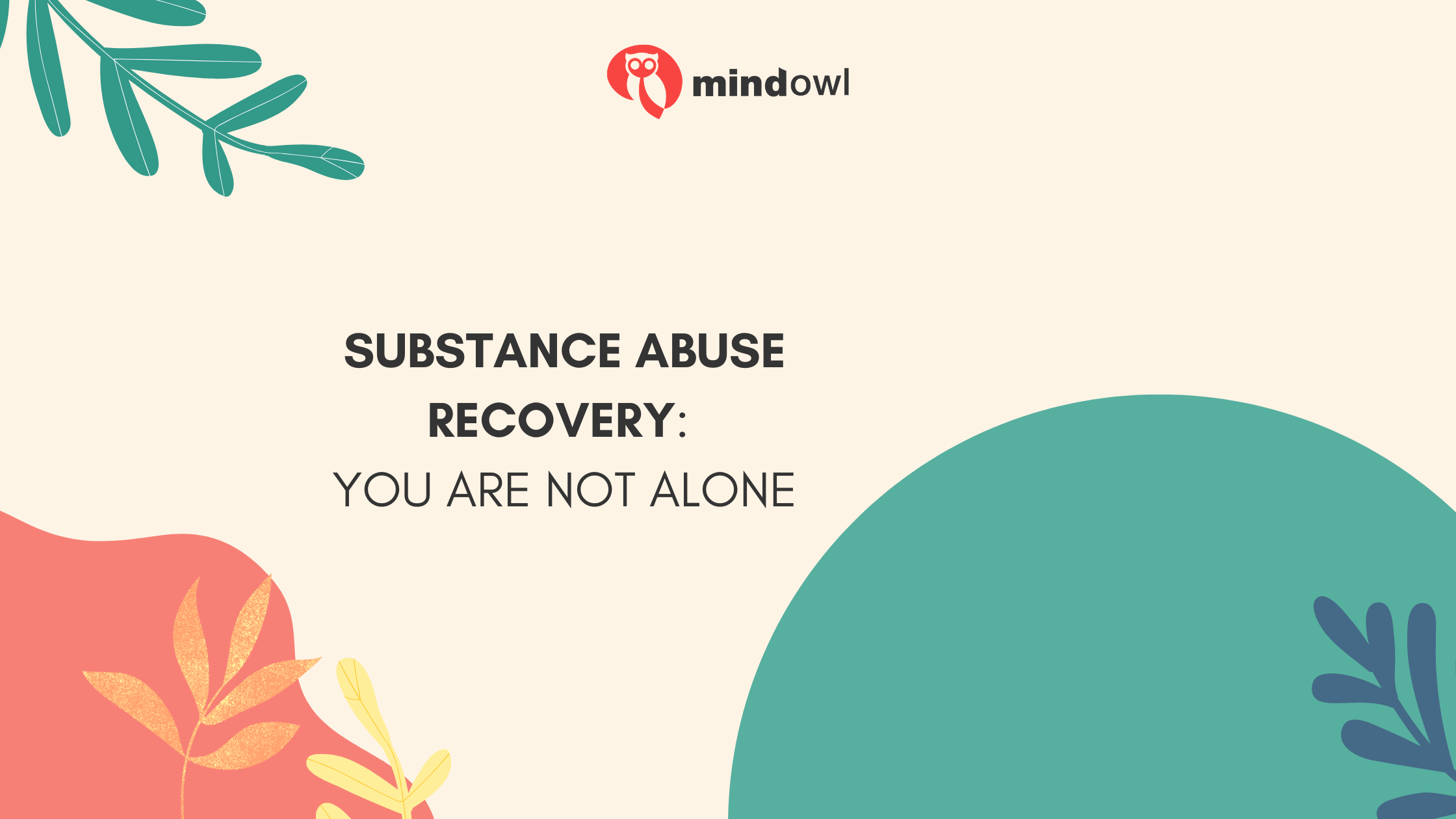Battling substance abuse and addiction can feel incredibly isolating. The shame, guilt and fear can make you feel like you are the only one battling these demons. But the truth is that millions of people around the world face similar challenges.
You are not alone in this struggle.
This blog has been created to provide a supportive community for those on the road to recovery from substance abuse. Here you will find practical advice and resources to help you through the ups and downs. Most importantly, you’ll be reminded that your struggle is valid and that your journey is shared by many others.
Key Takeaways
- HealthPartners supports people overcoming substance abuse in Minnesota and Wisconsin by providing a community network.
- Joining support groups, attending therapy sessions, and engaging with digital forums can greatly aid recovery efforts.
- Sharing your story and listening to others’ experiences fosters a sense of belonging and mutual support which is vital for sobriety.
- Digital tools like social media offer accessible platforms for connecting with peers globally, learning coping strategies, and finding encouragement.
- Participating in community events, workshops, or creative therapies broadens the support network while introducing effective coping mechanisms.

Essential Steps for Leveraging Community Support
Connect with peers in recovery and participate in support groups and therapy sessions. Use online forums and social media effectively to leverage digital tools for recovery support.
Connect with Peers in Recovery
Finding friends who understand your journey can make all the difference. They know what you’re going through and can offer support when you need it most.
- Join a support group for people in recovery. Groups like Alcoholics Anonymous or Narcotics Anonymous provide a safe space to meet others facing similar challenges.
- Attend therapy sessions that focus on substance use disorder. These gatherings offer professional insight and peer experiences in one setting.
- Sign up for workshops or seminars related to substance abuse and mental health services. These events are great for learning new coping techniques and meeting peers.
- Get involved with community activities geared towards recovery support. Whether it’s a sober sporting event or an art class, doing activities together helps strengthen bonds.
- Use social media and online forums wisely to connect with peers worldwide. Platforms dedicated to addiction recovery can be very supportive.
- Share your own story at meetings or online groups. This not only helps others feel less alone but also strengthens your commitment to sobriety.
- Offer to buddy up with someone newer to the recovery process than you are. Sharing what you’ve learned and listening to their experiences can be mutually beneficial.
- Look out for national helplines like SAMHSA’s National Helpline – it’s confidential and can guide you towards local resources and communities.
- Support friends or family members in their recovery journey, understanding that this will build a stronger network around you as well.
- Finally, never underestimate the power of simply listening to someone else’s story without judgment, as this is often what people need most during tough times.
Participate in Support Groups and Therapy Sessions
Seeking professional help is an important part of the recovery process for most people. Professional help again can take many forms; you could get help through an addiction help centre, via a GP, counsellor, or emergency service. These settings offer unparalleled emotional support, helping you feel understood and less isolated. Joining support groups and engaging in therapy sessions can also be fundamental in the journey to overcome an addiction.
- Look for local or online support groups that focus on substance use disorder recovery. These groups provide a platform where you can share your experiences and listen to others facing similar situations, making you realise you’re not alone.
- Reach out for professional help by finding a therapist or counsellor specialising in addiction treatment. They can tailor a recovery plan that suits your needs, helping you navigate through the challenges of getting back on track.
- Engage actively in sessions, whether they are held in person or through digital platforms like Zoom. Active participation helps build your support network and strengthens your commitment to a sober life.
- Use social media cautiously but positively to connect with recovery communities online. Platforms like Facebook have private groups where members encourage each other daily.
- Seek out therapy sessions that incorporate family involvement because addiction often affects loved ones too. Support groups for families can assist everyone involved in understanding the disease better and how to offer constructive assistance and support.
- Educate yourself about self-care practices through these gatherings. Learning how to take care of your mental and physical health is essential for long-term recovery.
- Choose events or meetings that tackle how to deal with setbacks such as relapse, addressing them as part of the recovery process rather than signs of failure.
- Look into options available within these groups such as referral services for additional treatment programmes or specialists if needed, ensuring you have access to broader resources available.
- Remind yourself regularly of the importance of patience and persistence by hearing success stories within these sessions—knowing others have overcome their addiction provides hope and motivation.
- Practice empathy towards others in your group; supporting fellow members reinforces your own resolve and builds enduring friendships grounded in mutual respect and shared experiences.
The Impact of Digital Tools on Recovery Support
Utilise online platforms and social media to connect with others in recovery. Engage in digital forums and leverage the power of technology for support and encouragement.
Use Online Forums and Social Media Effectively
Online forums and social networks are like bridges, bringing people together from all walks of life. In recovery, they help you feel less alone. Many who battle addiction use these platforms to share their stories and encourage each other.
Imagine logging into a forum and reading about someone overcoming the same hurdles as you. It shows that victory is possible.
Social media also keeps you connected with support groups where advice flows freely. You can learn coping techniques or find out about the latest treatment options without having to leave your home.
Think of it as having a support network in your pocket, ready to help whenever you may feel tempted or down.
Social media isn’t just for sharing memes; it’s a lifeline for those seeking to overcome their addiction.
Address Challenges Together with Community Support
Connect with peers who have gone through similar challenges, share experiences, and learn coping techniques together. Read more about the importance of community support in overcoming substance abuse recovery.
Share Experiences and Learn Coping Techniques
Sharing your journey can light the path for others and yourself. Learning from each other helps us tackle challenges with fresh strategies.
- Join support groups where members discuss their battles with substances like drugs and alcohol. These places welcome stories and offer a shoulder to lean on.
- Engage in therapy sessions, either one-on-one or in a group setting. Counseling professionals guide discussions that unearth common struggles and solutions.
- Take part in workshops focusing on taking life one day at a time. Experts share coping techniques that make managing day-to-day life more manageable.
- Practice self-care routines suggested by fellow recovery members. They might include activities like meditation or exercise, which strengthen mental health.
- Use online forums wisely to seek advice and share experiences quietly. Digital platforms provide an always-available place to find someone who understands.
- Contribute your story to blogs or social media groups dedicated to recovery from addiction is a disease that many battle silently; breaking this silence can empower others.
- Learn about the science of addiction through reliable sources recommended by the community, including HealthPartners programs in Minnesota and Wisconsin.
- Engage in art therapy or other creative outlets as suggested by peers, offering a different way to express feelings and reduce stress without words.
- Participate in local events or meetings that focus on overcoming the stigma associated with being labelled an addict or abuser; standing together makes everyone stronger.
- Adopt new hobbies introduced within your support network as a means of distraction and discovering joy in sober living.
These steps show that together, tackling isolation, understanding addiction as a chronic illness, and encouraging each other is important for recovery success.
Conclusion: The Strength of Unity in Recovery
Recovery is tough. But, remember, walking this path means you’re never walking alone. Around every corner, there are folks ready to listen, help, and guide you towards brighter days.
Online spaces buzz with stories just like yours and advice to light the way. Let’s face it – together we’re stronger, and with unity comes hope. So keep reaching out, sharing your journey, and using every tool at your disposal.
Your recovery family is vast and always growing – you’ve got this!
MindOwl Founder – My own struggles in life have led me to this path of understanding the human condition. I graduated with a bachelor’s degree in philosophy before completing a master’s degree in psychology at Regent’s University London. I then completed a postgraduate diploma in philosophical counselling before being trained in ACT (Acceptance and commitment therapy).
I’ve spent the last eight years studying the encounter of meditative practices with modern psychology.

